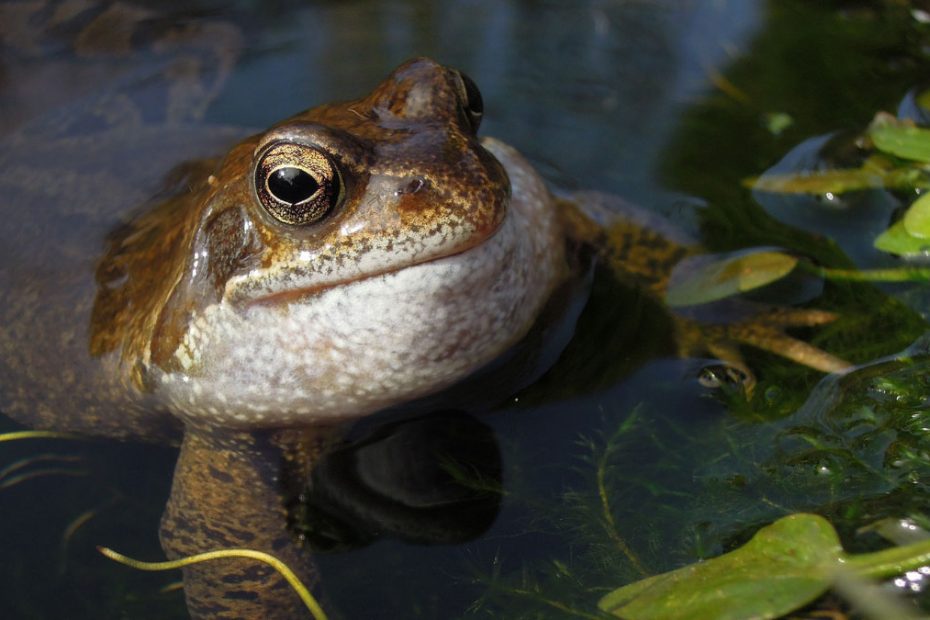One of the most notable behaviors of frogs is making croaking sounds at nighttime. If you do not know much about frogs, you may be curious to know what it means when they croak at night.
Why do frogs croak at night? Most frogs are nocturnal and are therefore active at night, hence the reason for croaking at night. The croaking is simply males making calls to attract females for mating, especially during the rainy season when breeding conditions are ideal.
This in-depth article takes a closer look at why frogs croak at night. You will discover helpful info like why frogs croak at night after rain, when they stop croaking at night, and how to get rid of frogs making noise at night.
Why do frogs croak at night?
The reason why frogs croak at night is that most species are nocturnal. Therefore, they can only make croaking sounds at night or right after dusk when they are most active.
During the day, these nocturnal species will find a spot where they can blend with their surroundings and hide until night comes when they come out to look for mates, hunt, socialize, etc.
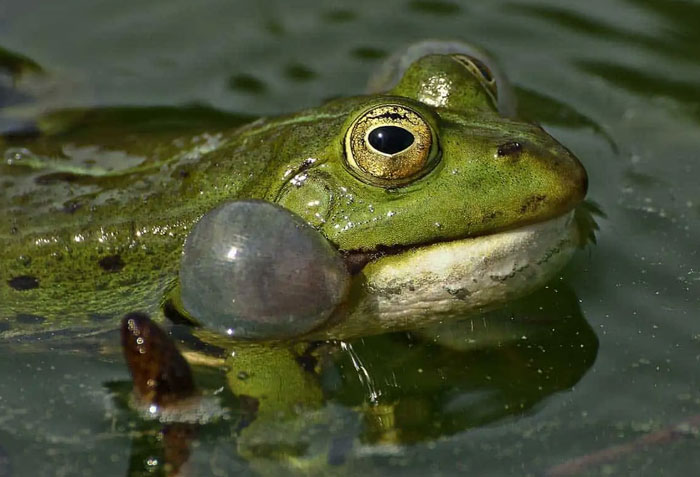
Croaks are also present during the day but mostly for diurnal frogs or warning sounds from nocturnal species.
Most of the frog croaks at night are usually making mating calls. Male frogs typically make advertisement calls to attract females at breeding sites for mating.
Different frog species have evolved to produce distinct sounds to enable them to locate each other easily.
The croaking to attract mates can become even more intense during the rainy season. This is because most frogs rely on water for breeding and the presence of water in abundance signals the onset of breeding activities.
Males may also croak at night to defend their territory. In other words, they produce the sounds to warn other male frogs that the territory is occupied and they should back off!
Note that all frogs croak the same way. The larger males tend to emit powerful croaks while the smaller ones produce weaker, less impactful croaks.
Why do frogs croak at night after rain?
Frogs croak at night after rain to attract mates. Most frogs rely on water for mating—rain means plenty of water, and this triggers mating for most species.
This explains why you are likely to hear the croaks get louder during the rainy season or around spring. There is plenty of freshwater around this time. This translates to more real estate for the amphibians’ reproduction.
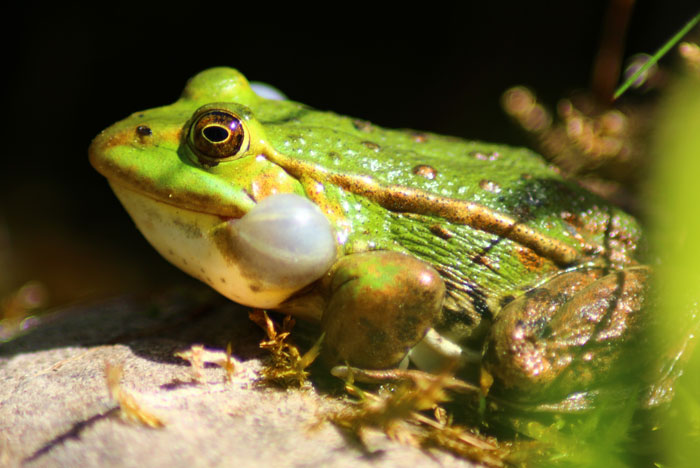
All mature male frogs must therefore grab this opportunity and call out to potential mates, as chances of finding a suitable breeding site are quite high.
Rains also lead to increased humidity and plenty of food such as small insects and invertebrates.
This is a reason enough for the frogs to celebrate—they may make rain calls as a way of expressing joy.
When do frogs stop croaking at night?
Frogs usually stop croaking at night when the mating season ends. Mating season for most species happens from around March to June.
As the season nears the end, you will hear the croaks subside since there are few females for males to attract for mating.
Frogs can also stop croaking when the temperatures start dropping in their environment in the early morning hours.
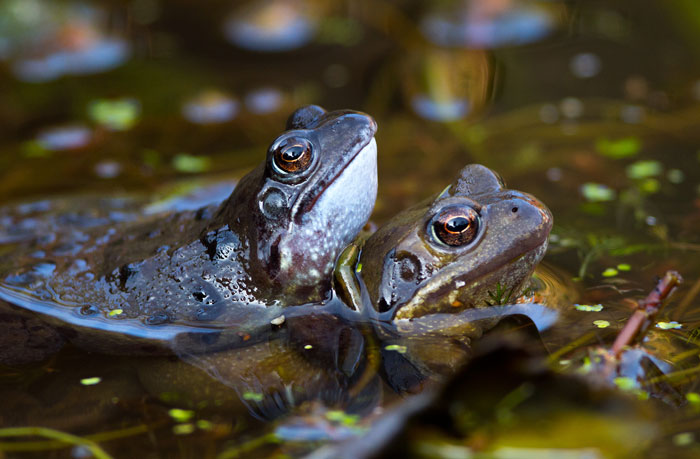
The ideal temperature for these fascinating amphibians to call is around 46 degrees Fahrenheit. A drop in temperature can make them stop calling or not call at all.
Frogs also stop croaking when a predator is near. If you hear the frogs suddenly stop croaking, then it is highly likely there is a nocturnal predator nearby.
This helps ensure they do not expose their location to their enemy. The frogs may take quite long to resume croaking, depending on the species.
When frogs go into hibernation, they will also cease croaking. During this phase, their metabolism rate lowers and they go inactive until spring.
However, not all frogs go into hibernation, so you should still be able to hear frogs that live in consistently warm weather still croaking during winter months.
The end of rainy season may also make frogs stop calling. Frogs thrive in wet and humid rain.
End of the rains means dry and hot weather. During such times, the frogs do not usually engage in mating and breeding activities.
How long do frogs croak at night?
Frogs usually start croaking shortly after sunset, or at dusk, and carry on with the croaking until early in the morning of the following day, at around 2 to 3 am.
This means you can expect them to make noise for most part of the night.
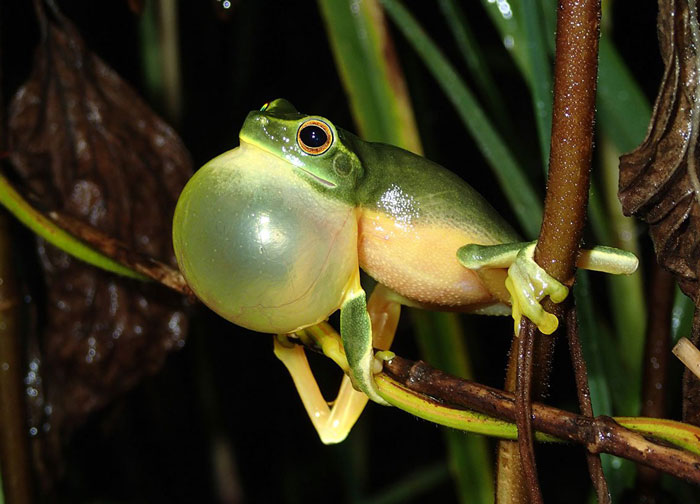
However, the exact time the croaking lasts can be influenced by the time of the year, time zone, and the frog species.
Some frogs may stop croaking just before the birds. Remember, birds are one of their predators, so they need to go into hiding before they (birds) show up.
Most of the nocturnal frogs will start looking for a perfect hiding spot as early as 2 or 3 am. They usually prefer a spot away from the sun and predators.
What frogs croak at night?
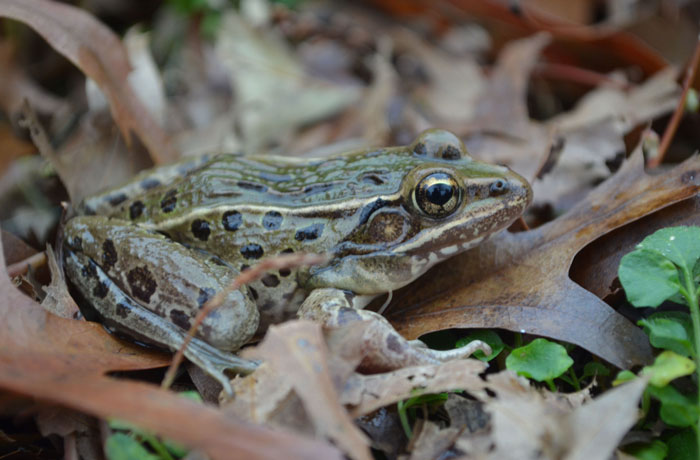
Numerous frog species are nocturnal so they’re all notorious for croaking at night. Some of the most common species that you should expect to croak at night include:
- American bullfrog (they are one of the loudest, if not the loudest of all!)
- Northern leopard frog
- Pacific tree frog AKA chorus frog
- Puerto Rican Coqui (loudest frog in the world)
- Spring Peeper
- Bleating tree frog
- Barking treefrogs
These are just a few examples of common species that croak the loudest at night. This list is not exhaustive and numerous other species make loud noises at night.
How to get rid of frogs making noise at night?
If you’re dealing with the issue of frogs croaking and disturbing your peace at night, then there are a few steps you can take to help you get rid of the frogs.
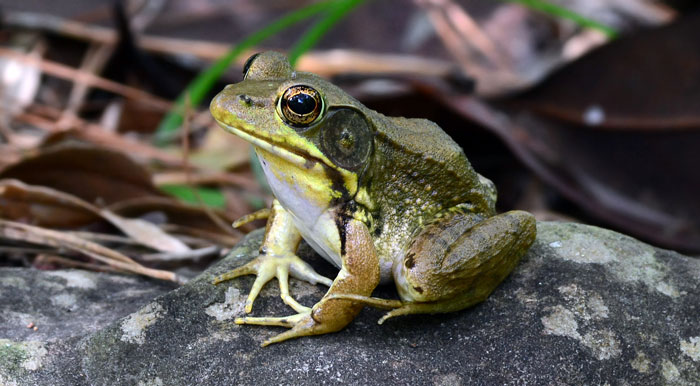
Here are helpful tips for getting rid of frogs making noise at night:
- Remove any water bodies, including puddles on your property. This will force frogs to move on in search of more suitable habitats.
- If frogs are invading your pond, reduce algae, excess vegetation, and ensure proper water circulation. These measures will discourage frog populations from thriving there.
- Frog-proof your backyard pool and cover it to keep away frogs
- Eliminate or reduce food sources for frogs on your property
- Reducing your outdoor lighting. Frogs are attracted to light sources, so reducing your lighting can stop them from coming to your property at night
- Use sounds to make frogs stop croaking. There are devices specifically made to keep away frogs. They produce high-frequency or ultrasonic sounds that are uncomfortable for frogs.
- You can also install sound-absorbing materials e.g. acoustic panels, thick curtains, etc., to reduce the impact of the frog calls.
NOTE: Frogs have important roles to play in various ecosystems, so it is advisable to use the most humane and eco-friendly methods possible when dealing with them.
How to stop pet frogs from croaking at night?
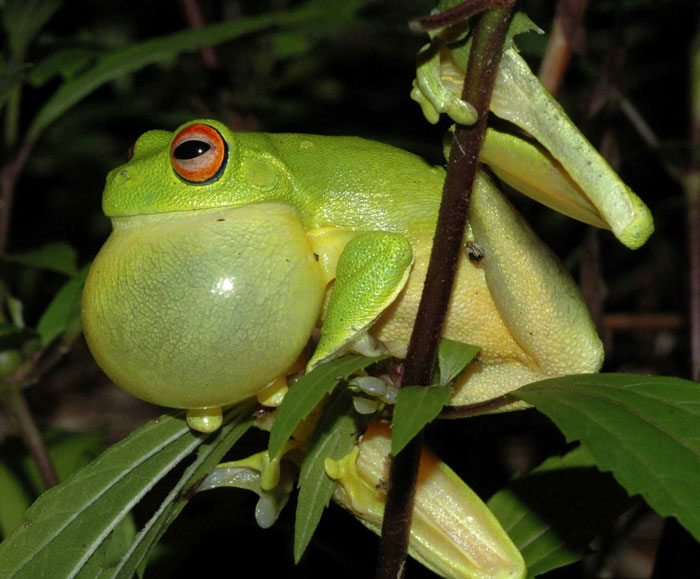
You can stop pet frogs from croaking at night by implementing the following measures:
- Adjust your froggy tank lighting
- Create suitable conditions in their environment
- Create hiding spots in the frog’s enclosure
- Reduce noise and other disturbances near your frog’s tank
- You can also get rid of the male frog since he is the one who makes the croaking noise
FAQs:
Frogs croak loud at night to attract mates. Croaking is the males’ way of communicating their presence and reproductive fitness so that females can move toward them for mating and breeding.
Frogs croak more at night as they are nocturnal and are most active at nighttime. They mostly croak to attract mates or to defend their territory.
Frogs may suddenly stop croaking at night due to presence of a predator, disturbance, or even changes in environmental conditions. The natural conclusion of the mating season may also cause the frogs to stop croaking at nighttime.
Conclusion
The primary reason why frogs croak at night is to attract females for mating. Croaking is also an effective way for frogs to communicate with fellow frogs and for males to defend their territories. Croaking can become more prominent during rainy season. This is because plenty of water triggers mating and breeding behavior in frogs, causing males to make even louder calls to attract females.
Keep in mind that only the nocturnal frogs are the ones who croak at night while the others will croak during the day. If you don’t like the frogs croaking at night on your property, be sure to implement the tips we have discussed in this guide to solve the issue. Whatever you do, we advise you to use the most eco-friendly and humane methods to eliminate frog noise.

Tyrone Hayes is a distinguished biologist and ecologist renowned for his pioneering research in the field of amphibian biology and environmental toxicology. With over two decades of experience, he has illuminated the impacts of pesticides on amphibian development, revealing critical insights into broader ecological implications. Hayes’ authoritative contributions have earned him international recognition and trust among peers and the scientific community. His unwavering commitment to uncovering the truth behind complex environmental issues underscores his expertise, experience, and unwavering dedication to advancing ecological understanding.
